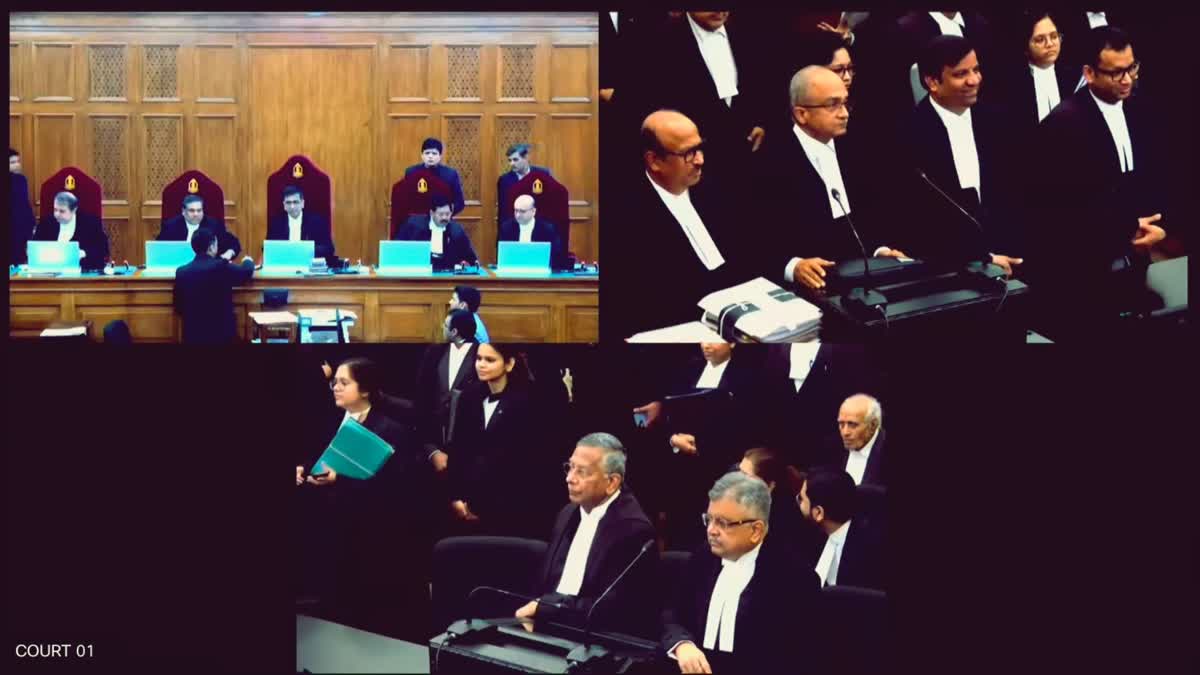New Delhi: The Supreme Court Thursday struck down the controversial electoral bonds scheme, saying it violates the right to information and freedom of speech and expression under the Constitution.
There were two separate but unanimous verdicts issued by a five-judge Constitution bench led by Chief Justice of India DY Chandrachud on pleas challenging the scheme.
The scheme notified by the government on January 2, 2018 was touted as an alternative to cash donations made to political parties, aimed at enhancing transparency in political funding. Until now, the scheme provided for purchasing electoral bonds by any citizen of India or entity incorporated or established in the country and allowed any individual to buy electoral bonds, either singly or jointly with other individuals.
Here are the most important points from the judgement delivered by the top court.
- Delivering the verdict, the CJI said the scheme is violative of freedom of speech and expression under Article 19(1)(a) of Constitution and that the fundamental right to privacy includes citizens' right to political privacy and affiliation.
- SC said the issuing bank shall forthwith stop the issue of electoral bonds and the State Bank of India shall furnish the details of donations through electoral bonds and the details of the political parties which received the contributions.
- A company has graver influence on the political process than contributions by individuals and contributions by companies are purely business transactions. Amendment to Section 182 Companies Act is manifestly arbitrary for treating companies and individuals alike. SC said the amendment to Companies Act is unconstitutional.
- The amendment violates the right to information of citizens, about possible quid pro quo and the amendment to Section 182 of Companies Act become otiose in view of court’s finding that electoral bonds scheme is unconstitutional.
- Centre was unable to establish that the measure adopted in clause 7(4)(1) of the electoral scheme is the least restrictive measure.
- SC said amendments to Income Tax Act provision and the Sec 29C of the Representation of Peoples Act are declared to be ultra vires.
- Financial contributions to political parties are made for two parties - for support to political parties or the contribution may be a way of quid pro quo.
- Infringement on the right to information is not justified by the purpose of curbing black money. Financial support to political parties can lead to quid pro quo arrangements and the electoral bonds scheme is not the only scheme to curb black money and there are other alternatives.
- Anonymity the electoral bonds provide are violative of right to information and Article 19(1)(a).
- The apex court asked the banks to forthwith stop issuing electoral bonds and asked SBI to provide all details of contributions made till date through the scheme to Election Commission by March 6. The commission will share the information on its website by March 13.
Read More



